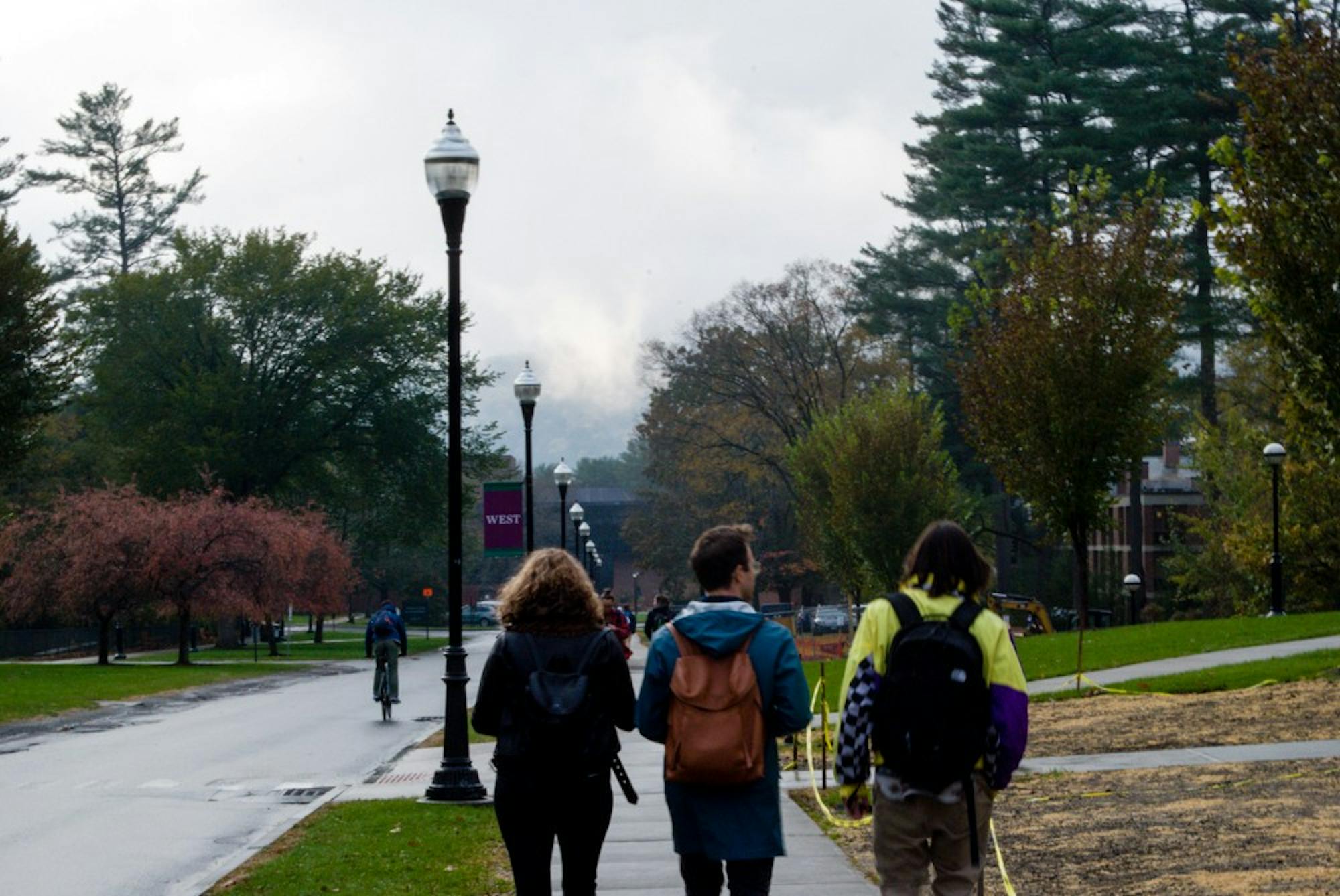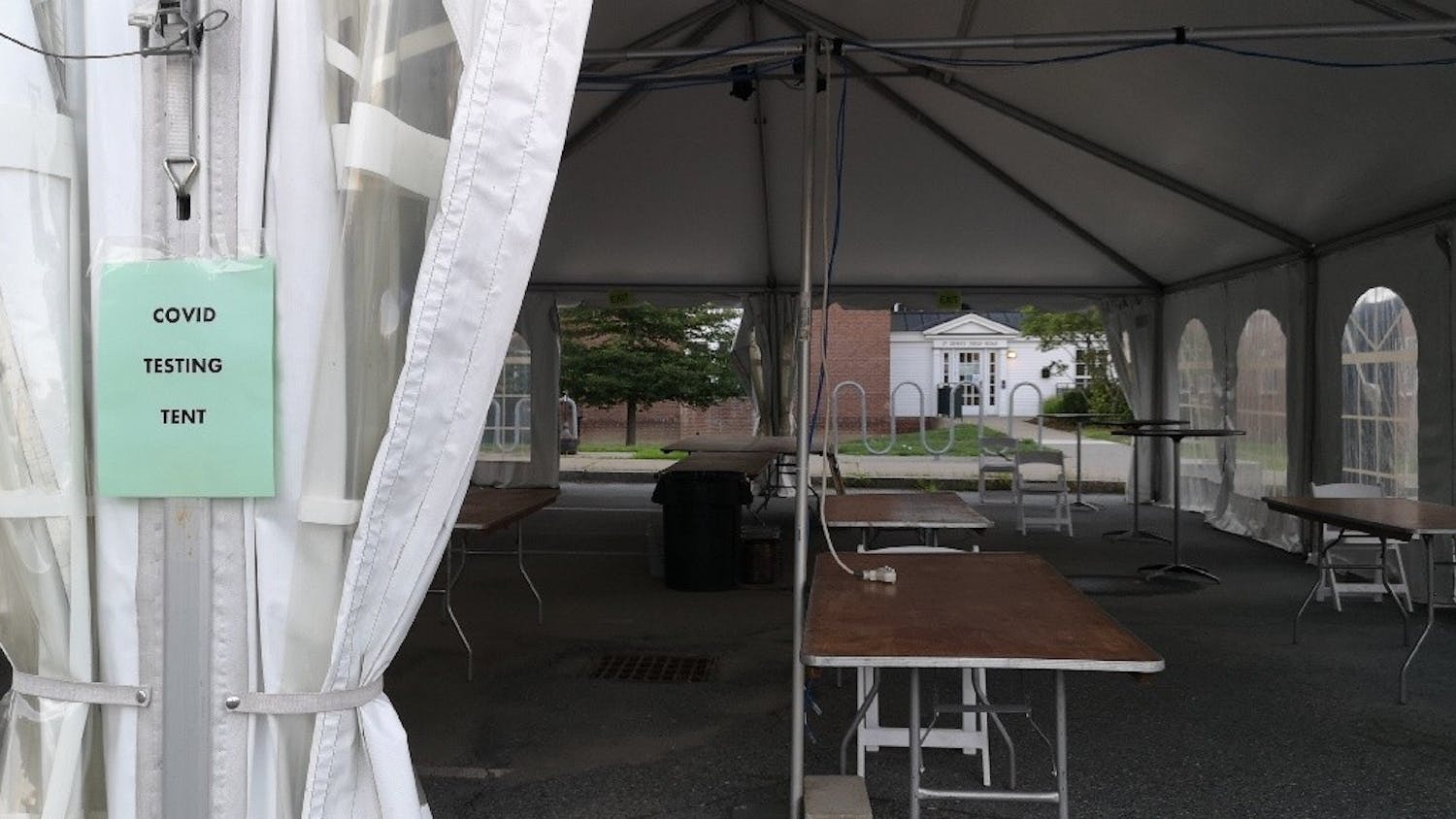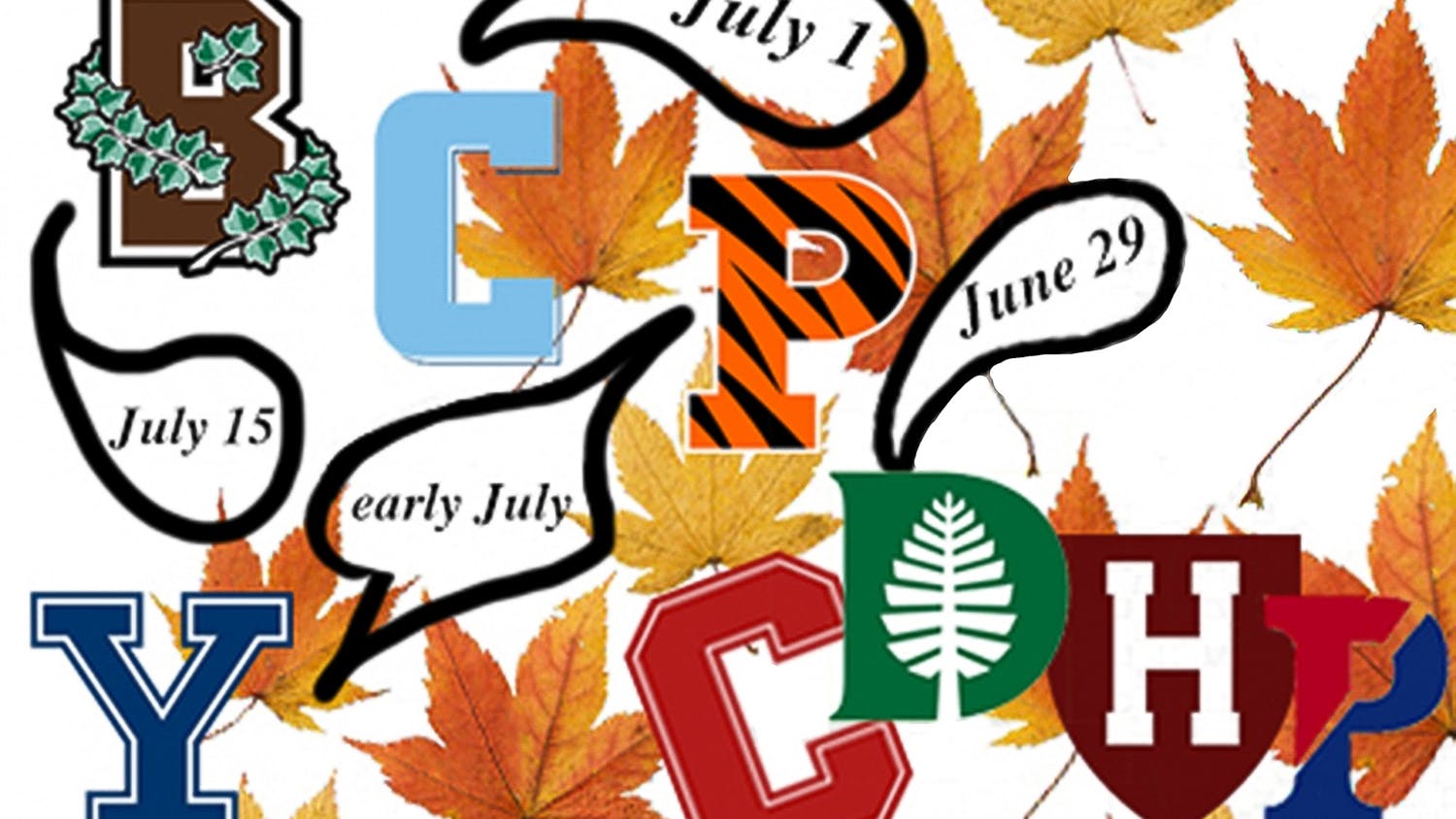Several of Dartmouth’s peer institutions have announced changes to their academic plans for the fall, leading students to wonder whether they will be allowed to return to Hanover next month.
During Wednesday’s “Community Conversations” video stream, Provost Joseph Helble announced that the College will observe how reopening proceeds on other campuses across the country and make an announcement next week as to Dartmouth’s plans.
“In at least one case so far, we have seen infection levels rise,” Helble said, “and this is data that we need to and will track, on that and other campuses, before we confirm our plan to bring undergraduate students back to Hanover this fall.”
Dartmouth’s current plan will welcome many students in the classes of 2024 and 2022 to campus for the fall term, which begins September 14. Students will receive prearrival COVID-19 tests, and upon arrival will be required to quarantine for two weeks and submit to multiple rounds of testing. Almost all classes will be taught remotely.
The plan somewhat resembles those of Cornell University, Harvard University and Yale University, who have not yet announced any changes to their in-person residence plans for the fall, and are expecting some undergraduate students to begin moving in on August 17, August 23 and August 24, respectively.
Though many Cornell students will be required to quarantine upon entering the state of New York, the university has announced that it will be unable to provide enough quarantine housing for all students. Harvard students will go through an 8-day quarantine that becomes progressively less strict over time. Yale students coming from the 33 states on Connecticut’s travel advisory list, as well as Puerto Rico and the U.S. Virgin Islands, must quarantine for two weeks once they arrive on campus.
Helble said that at other universities, “very specific circumstances,” such as state or local requirements, have led to the changes in reopening plans — circumstances not always applicable to Dartmouth.
Over the past two weeks, Columbia University, Princeton University, Stanford University and the University of Pennsylvania have announced that classes will be conducted remotely and that students would not be allowed to return to campus for the fall semester, all citing local conditions or logistical challenges. Brown University announced that move-in dates would be staggered and in-person classes would not resume until October at the earliest.
In an August 7 message to students, Princeton president Christopher Eisgruber wrote that administrators were concerned that the impact of COVID-19 in New Jersey would prevent the university from providing a “genuinely meaningful on-campus experience for our undergraduate students this fall in a manner that is respectful of public health concerns and consistent with state regulations and guidance.”
Eisgruber also cited the logistical complications of having to quarantine students from 34 states for 14 days once they enter New Jersey in accordance with state regulations, which also bar indoor dining services and common spaces. These restrictions, he said, would “significantly diminish the educational value of the on-campus experience” and be “confining and unpleasant for most students.”
An August 11 message from Penn administrators also raised concerns about state quarantine guidelines. The message said that Penn would be unable to complete its original pre-testing plan due to disruptions in supply chains and delays in receiving test results. The number of Penn students who would immediately need to quarantine for two weeks would be “untenable” and “the combination of these factors radically constrains our ability to provide a safe and meaningful on-campus experience for our undergraduates.”
Stanford president Marc Tessier-Lavigne expressed similar reasoning in an August 13 message to undergraduates, citing “the public health challenges associated with bringing large numbers of undergraduates back to campus dormitory residences under current health conditions, coupled with the limited nature of the on-campus experience we would be able to offer,” as well as newly released reopening guidelines for California institutions.
In an August 14 message, Columbia president Lee Bollinger also expressed concerns about New York’s 14-day quarantine requirement, writing that “two weeks is a long time to endure isolation, especially for students who will be leaving home for the first time. Conditions for all students in quarantine will be austere, to say the least.”
Bollinger also wrote that the possibility of safely bringing students back to campus for the fall changed drastically over the past six weeks, a concern shared by Brown president Christina Paxson, who wrote on August 11 that the COVID-19 situation in Rhode Island “has deteriorated over the past several weeks.”
Brown’s move-in dates have been staggered and delayed, Paxson wrote, because it is “unclear whether cases will decline or continue to rise in the coming weeks” and the ability of the university to isolate and quarantine students “could be unduly stressed if a large number of returning students simultaneously test positive for COVID-19.”
All Brown students will attend classes online starting on September 9 until in-person classes are scheduled to resume on October 5.
Some schools that allowed students to return to campus have reversed their decisions after seeing outbreaks of COVID-19.
The University of North Carolina at Chapel Hill, which began classes on August 10 and did not test all students upon arrival, saw several COVID-19 clusters develop within the first week of classes across multiple dorm buildings and one Greek house. UNC administrators wrote in an August 17 message that “as much as we believe we have worked diligently to help create a healthy and safe campus living and learning environment, we believe the current data presents an untenable situation” and that all classes would be offered remotely beginning August 19. Students were encouraged to leave dorms, but some may be allowed to stay if they lack reliable internet access.
The University of Notre Dame also experienced large increases in positive cases after seeing several off-campus parties at which attendees did not observe mask or physical distancing guidelines. Though the university had only confirmed eight positive cases when classes began on August 10, 229 tested positive by August 18, with most of the cases linked to these gatherings. Notre Dame president Rev. John Jenkins announced that day that in-person classes would be moved online for two weeks, from August 19 until September 2.
The uncertainty of what the fall term will look like at Dartmouth and whether it will take place, combined with watching other campuses change their plans, has weighed on students who plan to return in the fall.
“It’s a little nerve-wracking,” Aliyah Samuelson ’24 said. “If they were to close down the campus and have us take online classes from home, I would hope that they would still let a lot of the freshmen defer, because I think as a freshman having some sort of on-campus experience is really important.”
Ben Vagle ’22, who has already completed two terms of online courses, said that another remote term feels like “a waste of a Dartmouth education.”
“I think a lot of us juniors had the expectation that we would be able to return to campus and have spent the past few months organizing our lives around that,” he said. “Obviously the COVID situation around the country is making it very difficult for colleges to reopen, so with that in mind, I'm frustrated. I'm not angry at the College, but I really do wish that we lived in a more concrete domestic environment, so we could actually count on returning to college.”
Representatives from Columbia, Cornell, Harvard, Penn and Princeton did not respond to requests for comment. Representatives from Brown and Yale declined to comment but provided links to their administrators’ statements.

Lauren ('23) is news executive editor for The Dartmouth. She is from Bethesda, Maryland, and plans to major in government and minor in public policy.




